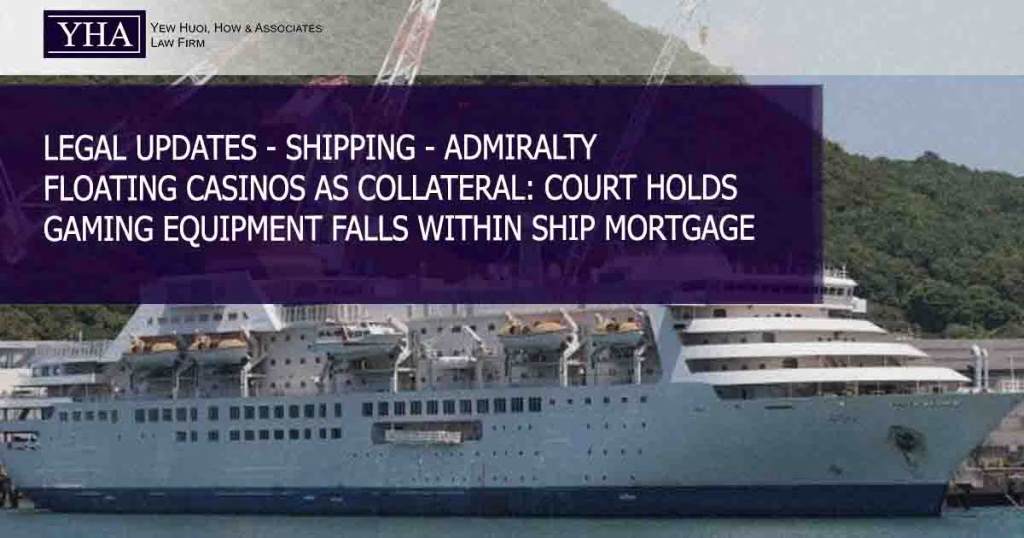1. Summary and Facts
Kfw IPEX-Bank GmbH v Owner of the Vessel “World Dream” [2025] 2 Lloyd’s Rep 137 concerns a dispute over whether the gaming equipment on board the cruise ship World Dream was included in the ship mortgage. The claimant, KfW IPEX-Bank GmbH, a German bank, had financed the construction of the vessel together with other financial institutions. The owner, World Dream Ltd (“WDL”), owned a large cruise ship which had variety of facilities on board such as restaurants, bars, swimming pools, a spa or fitness centre and gaming equipment including slot machines, casino tables and smaller paraphernalia. Later, the parent company entered voluntary winding-up proceedings, triggering an event of default under the facility agreement. This entitled KfW to accelerate the loan. KfW subsequently arrested the vessel in Singapore, obtained judgment, and the ship was sold in 2023 for approximately US$330 million. WDL then applied for a declaration that the on-board gaming equipment did not fall within the scope of the mortgage.
2. Legal Issues
• Whether the mortgage created between WDL and KfW under the Facility Agreement, WD Mortgage and WD Deed included to the gaming equipment on board of the vessel.
3. Court’s Findings
• The Singapore High Court held that “ship” includes articles necessary either for navigation or for the prosecution of the vessel’s commercial adventure. As the World Dream’s adventure was to provide passengers with a multi-faceted leisure and entertainment experience, gaming was integral. The equipment was therefore necessary to the prosecution of that adventure and fell within the mortgage.
• The gaming equipment on board the vessel was included in the mortgage as it was part of the ship.
• The gaming equipment qualified as its appurtenances or integral to its function as a casino cruise ship.
4. Practical Implications
• Mortgage security extends beyond navigation gear to cover high-value commercial equipment necessary for a vessel’s intended adventure (e.g. casinos on cruise ships).
• The decisive factor is whether the item is necessary for the vessel’s adventure, not its physical nature.
• Parties should expressly specify valuable movable assets (e.g. gaming, gym, or luxury equipment) in mortgage deeds to minimise disputes.

